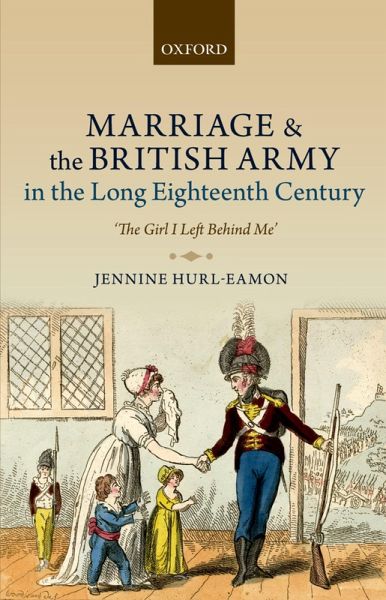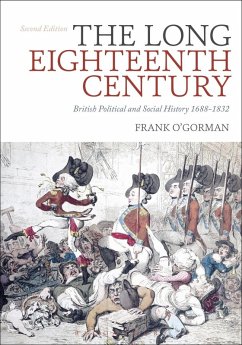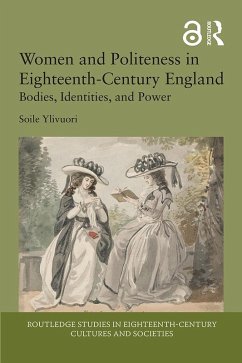
Marriage and the British Army in the Long Eighteenth Century (eBook, PDF)
'The Girl I Left Behind Me'

PAYBACK Punkte
22 °P sammeln!
The Girl I Left Behind Me addresses a neglected aspect of the history of the Hanoverian army. From 1685 to the beginning of the Victorian era, army administration attempted to discourage marriage among men in almost all ranks. It fostered a misogynist culture of the bachelor soldier who trifled with feminine hearts and avoided responsibility and commitment. The army's policy was unsuccessful in preventing military marriage. By concentrating on the many soldiers' wives who were unable to win permission to live "on the strength" of the regiment (entitled to half-rations) and travel with their hu...
The Girl I Left Behind Me addresses a neglected aspect of the history of the Hanoverian army. From 1685 to the beginning of the Victorian era, army administration attempted to discourage marriage among men in almost all ranks. It fostered a misogynist culture of the bachelor soldier who trifled with feminine hearts and avoided responsibility and commitment. The army's policy was unsuccessful in preventing military marriage. By concentrating on the many soldiers' wives who were unable to win permission to live "on the strength" of the regiment (entitled to half-rations) and travel with their husbands, this title explores the phenomenon of soldiers who persisted in defying the army's anti-marriage initiatives. Using evidence gathered from ballads, novels, court and parish records, letters, memoirs, and War Office papers, Jennine Hurl-Eamon shows that both soldiers and their wives exerted continual pressure on the state through evocative appeals to officers and civilians, fuelled by wives' pride in performing their own military "duty" at home. Respectable, companionate couples of all ranks reflect a subculture within the army that recognized the value in Enlightenment femininity. Looking at military marriages within the telescoping contexts of the state, their regimental and civilian communities, and the couples themselves, The Girl I Left Behind Me reveals the range of masculinities beneath the uniform, the positive influence of wives and sweethearts on soldiers' performance of their duties, and the surprising resilience of partnerships severed by war and army anti-marriage policies.
Dieser Download kann aus rechtlichen Gründen nur mit Rechnungsadresse in A, B, BG, CY, CZ, D, DK, EW, E, FIN, F, GR, HR, H, IRL, I, LT, L, LR, M, NL, PL, P, R, S, SLO, SK ausgeliefert werden.













